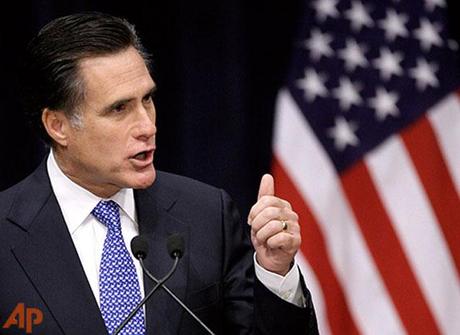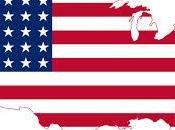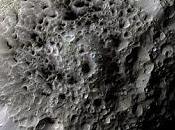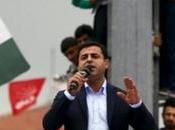Di Ennio Emanuele Piano il 7 ottobre | ore 19 : 28 PM

Dal sito del magazine neoconservatore “The weekly standard”, pubblichiamo il discorso che il candidato alle primarie repubblicane Mitt Romney, già governatore del Massachusetts, pronuncierà a Charleston, Sud Carolina, presso l’accademia militare di Citadel, a proposito della politica estera e del ruolo degli Stati Uniti nel mondo:
It’s a great honor to be in South Carolina, where patriotism is a passion that tops even barbeque and football.
And it’s a great honor to be here at the Citadel.
Every great university and college produces future engineers, doctors, lawyers and entrepreneurs. Here at the Citadel, you do all that but you have another specialty – you produce heroes. Over 1400 of your alumni have served in Iraq, Afghanistan, and elsewhere fighting the war against terrorism. And sixteen have paid the ultimate price.
Since 1842, every tyrant, petty thug or great power that threatened America learned that if you wanted to take on America, you were taking on the Citadel. That’s a line of heroes that’s never broken and never will be.
This is a true citadel of American honor, values and courage.
The other day I heard the President say that Americans had gone “soft.” I guess he wasn’t talking about how hard it is for millions of Americans who are trying to get a job or stretch a too small paycheck through the week.
As each of you looks beyond this great institution, to the life before you, I know you face many difficult questions in a world fraught with uncertainty. America is in an economic crisis the likes of which we have never seen in our lifetime. Europe is struggling with the greatest economic crisis since the Cold War, one that calls into question the very definition of the European Union.
Around the world we see tremendous upheaval and change. Our next President will face extraordinary challenges that could alter the destiny of America and, indeed, the future of freedom.
Today, I want you to join me in looking forward. Forward beyond that next Recognition Day, beyond Ring Weekend to four years from today, October 7th, 2015.
What kind of world will we be facing?
Will Iran be a fully activated nuclear weapons state, threatening its neighbors, dominating the world’s oil supply with a stranglehold on the Strait of Hormuz? In the hands of the ayatollahs, a nuclear Iran is nothing less than an existential threat to Israel. Iran’s suicidal fanatics could blackmail the world.
By 2015, will Israel be even more isolated by a hostile international community? Will those who seek Israel’s destruction feel emboldened by American ambivalence? Will Israel have been forced to fight yet another war to protect its citizens and its right to exist?
In Afghanistan, after the United States and NATO have withdrawn all forces, will the Taliban find a path back to power? After over a decade of American sacrifice in treasure and blood, will the country sink back into the medieval terrors of fundamentalist rule and the mullahs again open a sanctuary for terrorists?
Next door, Pakistan awaits the uncertain future, armed with more than 100 nuclear weapons. The danger of a failed Pakistan is difficult to overestimate, fraught with nightmare scenarios: Will a nuclear weapon be in the hands of Islamic Jihadists?
China has made it clear that it intends to be a military and economic superpower. Will her rulers lead their people to a new era of freedom and prosperity or will they go down a darker path, intimidating their neighbors, brushing aside an inferior American Navy in the Pacific, and building a global alliance of authoritarian states?
Russia is at a historic crossroads. Vladimir Putin has called the breakup of the Soviet empire the great tragedy of the 20th Century. Will he try to reverse that tragedy and bludgeon the countries of the former Soviet Union into submission, and intimidate Europe with the levers of its energy resources?
To our South, will the malign socialism of Hugo Chavez’s Venezuela, in tight alliance with the malign socialism of Castro’s Cuba, undermine the prospects of democracy in a region thirsting for freedom and stability and prosperity?
Our border with Mexico remains an open sore. Will drug cartels dominate the regions adjoining the United States, with greater and greater violence spilling over into our country? Will we have failed to secure the border and to stem the tide of illegal immigrants? And will drug smugglers and terrorists increasingly make their way into our midst?
This would be a troubling and threatening world for America. But it is not unrealistic. These are only some of the very real dangers that America faces, if we continue with the feckless policies of the past three years.
But of course, it doesn’t have to be this way. This isn’t our destiny, it is a choice. We are a democracy. You decide. In this campaign for President, I will offer a very different vision of America’s role in the world and of America’s destiny.
Our next President will face many difficult and complex foreign policy decisions. Few will be black and white.
But I am here today to tell you that I am guided by one overwhelming conviction and passion: This century must be an American Century. In an American Century, America has the strongest economy and the strongest military in the world. In an American Century, America leads the free world and the free world leads the entire world.
God did not create this country to be a nation of followers. America is not destined to be one of several equally balanced global powers. America must lead the world, or someone else will. Without American leadership, without clarity of American purpose and resolve, the world becomes a far more dangerous place, and liberty and prosperity would surely be among the first casualties.
Let me make this very clear. As President of the United States, I will devote myself to an American Century. And I will never, ever apologize for America.
Some may ask, “Why America? Why should America be any different than scores of other countries around the globe?”
I believe we are an exceptional country with a unique destiny and role in the world. Not exceptional, as the President has derisively said, in the way that the British think Great Britain is exceptional or the Greeks think Greece is exceptional. In Barack Obama’s profoundly mistaken view, there is nothing unique about the United States.
But we are exceptional because we are a nation founded on a precious idea that was birthed in the American Revolution, and propounded by our greatest statesmen, in our fundamental documents. We are a people who threw off the yoke of tyranny and established a government, in Abraham Lincoln’s words, “of the people, by the people, and for the people.”
We are a people who, in the language of our Declaration of Independence, hold certain truths to be self-evident: namely, that all men are endowed by their Creator with certain unalienable rights. It is our belief in the universality of these unalienable rights that leads us to our exceptional role on the world stage, that of a great champion of human dignity and human freedom.
I was born in 1947, a classic baby boomer. I grew up in a world formed by one dominant threat to America: the Soviet Union and Communism. The “duck and cover” drills we learned in school during the Cuban Missile Crisis resulted from a threat by a known, identifiable enemy, with clear borders and established leaders. We needed spy planes to find the hidden missile bases in Cuba but we didn’t need them to find Nikita Khrushchev. President Reagan could negotiate with Soviet Premier Mikhail Gorbachev and sign treaties for which each side could be held accountable. And when we caught the Soviets cheating, we could bring the world’s attention to their transgressions.
Today, our world is far more chaotic. We still face grave threats, but they come not from one country, or one group, or one ideology. The world is unfortunately not so defined. What America and our allies are facing is a series of threatening forces, ones that overlap and reinforce each other. To defend America, and to secure a peaceful and prosperous world, we need to clearly understand these emerging threats, grasp their complexity, and formulate a strategy that deals with them before they explode into conflict.
It is far too easy for a President to jump from crisis to crisis, dealing with one hot spot after another. But to do so is to be shaped by events rather than to shape events. To avoid this paralyzing seduction of action rather than progress, a President must have a broad vision of the world coupled with clarity of purpose.
When I look around the world, I see a handful of major forces that vie with America and free nations, to shape the world in an image of their choosing. These are not exclusively military threats. Rather, they are determined, powerful forces that may threaten freedom, prosperity, and America’s national interests.
First, Islamic fundamentalism with which we have been at war since Sept. 11, 2001.
Second, the struggle in the greater Middle East between those who yearn for freedom, and those who seek to crush it.
The dangerous and destabilizing ripple effects of failed and failing states, from which terrorists may find safe haven.
The anti-American visions of regimes in Iran, North Korea, Venezuela, and Cuba—two of which are seeking nuclear weapons.
And these forces include rising nations with hidden and emerging aspirations, like China, determined to be a world superpower, and a resurgent Russia, led by a man who believes the Soviet Union was great, not evil.
There is no one approach to these challenges. There is no Wall that the next President can demand to be torn down. But there is one unifying thread that connects each of these possible threats: when America is strong, the world is safer.
Ronald Reagan called it “Peace through Strength” and he was never more right than today. It is only American power—conceived in the broadest terms—that can provide the foundation of an international system that ensures the security and prosperity of the United States and our friends and allies around the world.
American strength rises from a strong economy, a strong defense, and the enduring strength of our values. Unfortunately, under this President, all three of those elements have been weakened.
As President, on Day One, I will focus on rebuilding America’s economy. I will reverse President Obama’s massive defense cuts. Time and again, we have seen that attempts to balance the budget by weakening our military only lead to a far higher price, not only in treasure, but in blood.
My strategy of American strength is guided by a set of core principles.
First, American foreign policy must be prosecuted with clarity and resolve. Our friends and allies must have no doubts about where we stand. And neither should our rivals. If the world knows we are resolute, our allies will be comforted and those who wish us harm will be far less tempted to test that resolve.
Second, America must promote open markets, representative government, and respect for human rights. The path from authoritarianism to freedom and representative government is not always a straight line or an easy evolution, but history teaches us that nations that share our values, will be reliable partners and stand with us in pursuit of common security and shared prosperity.
Third, the United States will apply the full spectrum of hard and soft power to influence events before they erupt into conflict. Resort to force is always the least desirable and costliest option. We must therefore employ all the tools of statecraft to shape the outcome of threatening situations before they demand military action. The United States should always retain military supremacy to deter would-be aggressors and to defend our allies and ourselves. If America is the undisputed leader of the world, it reduces our need to police a more chaotic world.
Fourth, the United States will exercise leadership in multilateral organizations and alliances. American leadership lends credibility and breeds faith in the ultimate success of any action, and attracts full participation from other nations. American leadership will also focus multilateral institutions like the United Nations on achieving the substantive goals of democracy and human rights enshrined in their charters. Too often, these bodies prize the act of negotiating over the outcome to be reached. And shamefully, they can become forums for the tantrums of tyrants and the airing of the world’s most ancient of prejudices: anti-Semitism. The United States must fight to return these bodies to their proper role. But know this: while America should work with other nations, we always reserve the right to act alone to protect our vital national interests.
In my first 100 days in office, I will take a series of measures to put these principles into action, and place America—and the world—on safer footing.
Among these actions will be to restore America’s national defense. I will reverse the hollowing of our Navy and announce an initiative to increase the shipbuilding rate from 9 per year to 15. I will begin reversing Obama-era cuts to national missile defense and prioritize the full deployment of a multilayered national ballistic missile defense system. I will order the formulation of a national cybersecurity strategy, to deter and defend against the growing threats of militarized cyber-attacks, cyber-terrorism, and cyber-espionage.
I will enhance our deterrent against the Iranian regime by ordering the regular presence of aircraft carrier task forces, one in the Eastern Mediterranean and one in the Persian Gulf region. I will begin discussions with Israel to increase the level of our military assistance and coordination. And I will again reiterate that Iran obtaining a nuclear weapon is unacceptable.
I will begin organizing all of our diplomatic and assistance efforts in the greater Middle East under one official with the authority and accountability necessary to train all our soft power resources on ensuring that the Arab Spring does not fade into a long winter.
I will launch a campaign to advance economic opportunity in Latin America, and contrast the benefits of democracy, free trade, and free enterprise against the material and moral bankruptcy of the Venezuelan and Cuban model.
I will order a full review of our transition to the Afghan military to secure that nation’s sovereignty from the tyranny of the Taliban. I will speak with our generals in the field, and receive the best recommendation of our military commanders. The force level necessary to secure our gains and complete our mission successfully is a decision I will make free from politics.
And I will bolster and repair our alliances. Our friends should never fear that we will not stand by them in an hour of need. I will reaffirm as a vital national interest Israel’s existence as a Jewish state. I will count as dear our Special Relationship with the United Kingdom. And I will begin talks with Mexico, to strengthen our cooperation on our shared problems of drugs and security.
This is America’s moment. We should embrace the challenge, not shrink from it, not crawl into an isolationist shell, not wave the white flag of surrender, nor give in to those who assert America’s time has passed. That is utter nonsense. An eloquently justified surrender of world leadership is still surrender.
I will not surrender America’s role in the world. This is very simple: If you do not want America to be the strongest nation on Earth, I am not your President.
You have that President today.
The 21st century can and must be an American century. It began with terror, war, and economic calamity. It is our duty to steer it onto the path of freedom, peace, and prosperity. My hope is that our grandchildren will remember us in the same way that we remember the past generations of Americans who overcame adversity, the generations that fought in world wars, that came through the Great Depression, and that gained victory in the Cold War. Let future generations look back on us and say, they rose to the occasion, they embraced their duty, and they led our nation to safety and to greatness.
The Greatest Generation is passing. But as their light fades, we must seize the torch they carried so gallantly at such sacrifice. It is an eternal torch of decency, freedom and hope. It is not America’s torch alone. But it is America’s duty – and honor – to hold it high enough that all the world can see its light.
Believe in America.
Thank you, and God Bless the United States of America.







